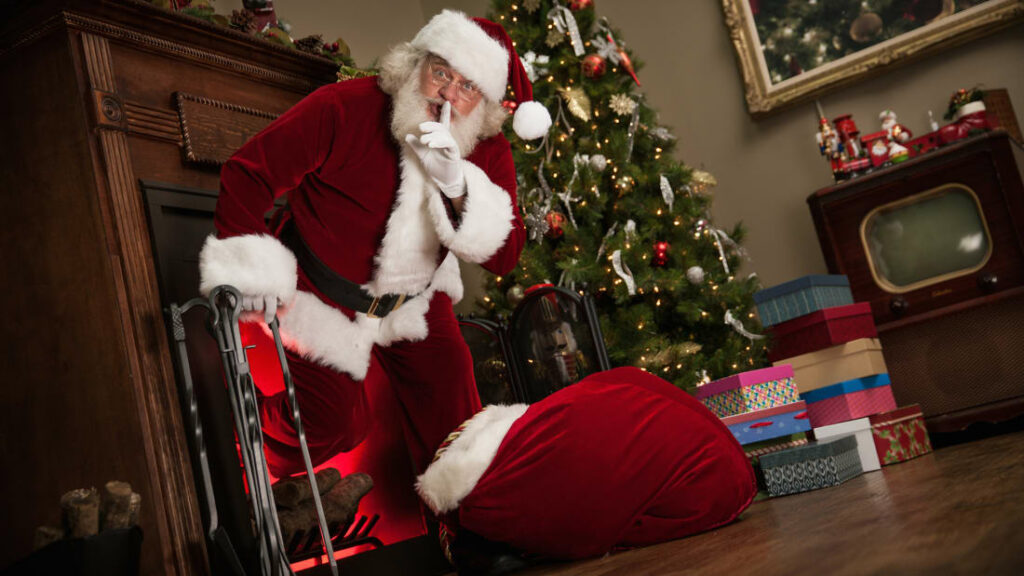As the holiday season commences, we want to remind you of some North Pole behaviour that is not condoned in New South Wales:
- Climbing onto a roof, sliding down someone’s chimney, and placing mysterious, unidentified items under their tree
- Picking a back door lock to have your share of milk and cookies
- You are only permitted to be an ‘Elf on the Shelf’ in your own home
In New South Wales, it is an offence to break into a house or premises and steal property. There is an array of offences under Part 4 ‘Stealing and Similar Offences’ of the Crimes Act 1900 (NSW) including Division 4 ‘Sacrilege and Housebreaking’.
Bail over the Christmas Period
If you are arrested by police and charged with a criminal offence, they will decide whether to let you out of the police station until your Court date.
This is called ‘police bail’. If you are refused police bail, they must bring you before a court as soon as practicable. This means that if you are arrested in the morning, you will normally be processed and brought before a court that afternoon. However, if the courts are closed by the time police finish processing you, you will be taken to court the next morning.
If you are arrested over the holiday period, whilst NSW Courts are closed over Christmas, the Bail Court will remain open.
There are often many months between being charged with an offence and having the matter finalised before a court.
Therefore, it is extremely important to seek advice and representation from a criminal lawyer, who can guide you through the process and give you the best prospect of being granted bail.
If you need advice or representation for a bail application over the Christmas and New Year period, contact the team at Hamilton Janke Lawyers 24/7 by calling 4038 1666.
Image: Mental Floss.
Key Takeaways
- The article humorously examines if Santa could be legally charged for break and enter in NSW during Christmas for his traditional entry methods.
- In NSW, breaking into a house to leave presents, like Santa does, would technically constitute an offense under the Crimes Act 1900.
- The article outlines the legal definitions and penalties for breaking, entering, and stealing, or committing a serious indictable offense inside a house.
- It also discusses the consequences of entering a premises with intent to commit a serious offense, highlighting the legal nuances of such actions.
- Furthermore, it touches on bail procedures during the holiday period and the importance of legal representation in these matters.
Break, Enter and Steal or Commit a Serious Indictable Offence
A person can be charged with Break, Enter and Steal if they break something like a gate, lock, window, or door, enter a house or premises and steal something.
Additionally, it is an offence to break into a house or premises and commit any other serious indictable offence. A serious indictable offence is one that carriers more than five years imprisonment, including assault occasioning actual bodily harm and sexual assault.
This offence carriers the maximum penalty of 14 years imprisonment.
If a person breaks and enters a house or premises with the intent to commit a serious indictable offence but it is not actioned, they will still be liable to imprisonment for 10 years.
There are different circumstances of ‘aggravation’ of seriousness of this offence depending on the conduct engaged in or the offence committed while inside the house or premises. These circumstances include having an offensive weapon or instrument, being in company of another person or knowing that there is someone else inside the house. There are also circumstances of ‘special aggravation’ including intentionally wounding or inflicting grievous bodily harm or being harmed with a dangerous weapon.
If the offending is done under circumstances of aggravation (even just the intent) a person will be liable to a maximum of 20 years imprisonment and 25 years if committed on specially aggravated circumstances.
See a further explanation on these charges on our Break and Enter Charges NSW page.
Written By

Drew Hamilton
Drew Hamilton is founding partner at Hamilton Janke Lawyers. Admitted to the Supreme Court of New South Wales as a Solicitor and also listed on the High Court of Australia register.




